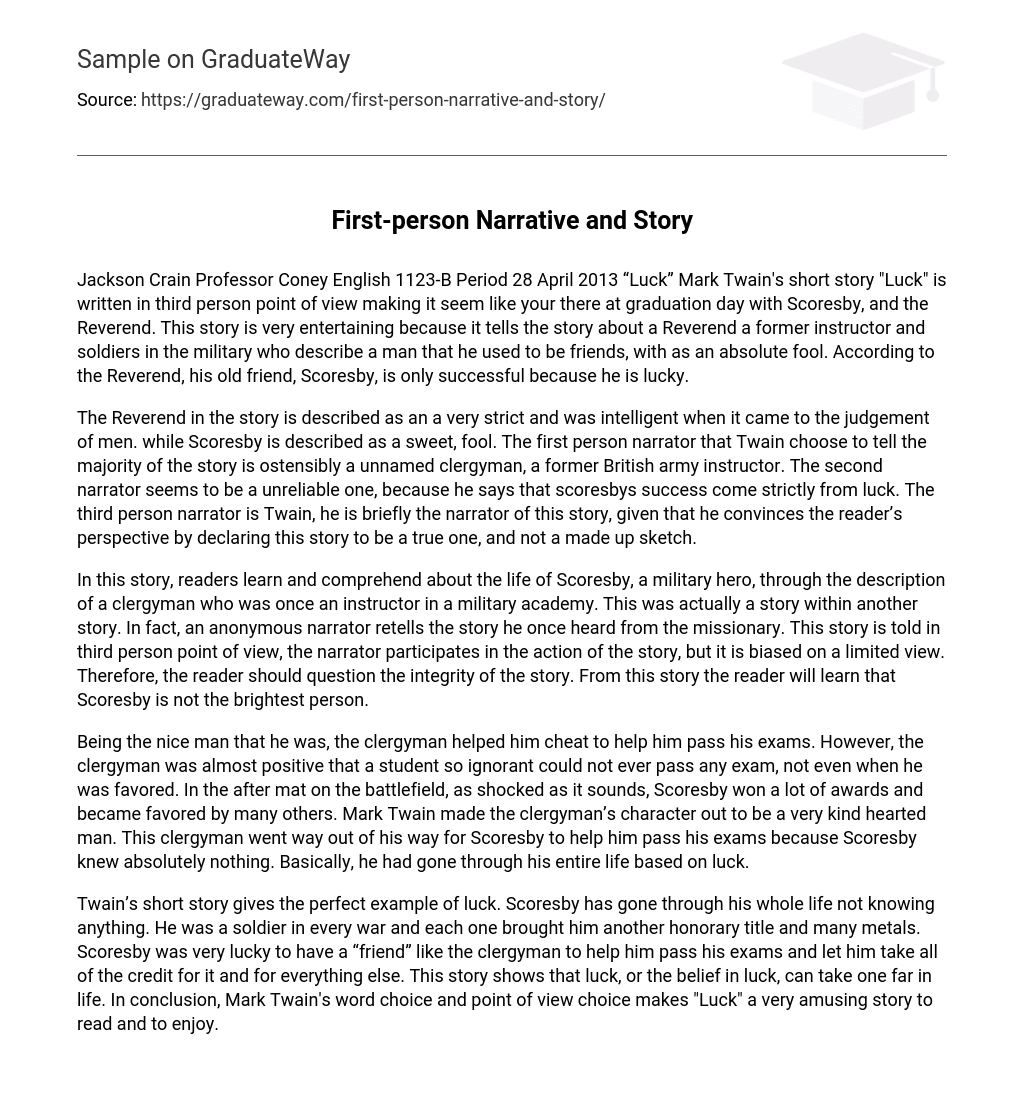Mark Twain’s short story “Luck” is written in the third person point of view, which makes it seem like you are there at graduation day with Scoresby and the Reverend. The story is entertaining because it describes a Reverend, a former instructor, and soldiers in the military who talk about a man that they used to be friends with as an absolute fool. According to the Reverend, his old friend Scoresby is only successful because he is lucky.
The Reverend in the story is described as very strict and intelligent when it comes to judging men, while Scoresby is described as a sweet fool. The first-person narrator that Twain chose to tell the majority of the story is ostensibly an unnamed clergyman who was a former British army instructor. The second narrator seems to be unreliable because he says that Scoresby’s success came strictly from luck. The third-person narrator is Twain himself, briefly narrating this story and convincing the reader’s perspective by declaring it to be true rather than a made-up sketch.
In this story, readers learn about the life of Scoresby, a military hero, through the description of a clergyman who was once his instructor in a military academy. This is actually a story within another story. An anonymous narrator retells the tale he once heard from the missionary. The story is told in third-person point of view and while the narrator participates in the action, it is biased by a limited perspective. Therefore, readers should question its integrity. From this account, readers will learn that Scoresby is not particularly bright.
Being the nice man that he was, the clergyman helped Scoresby cheat on his exams. However, he was almost certain that someone as ignorant as Scoresby would never pass any exam, even with help. Despite this, after the battle ended, Scoresby surprisingly won many awards and gained favor with others. Mark Twain portrayed the clergyman as a kind-hearted man who went above and beyond to assist Scoresby due to his lack of knowledge. Essentially, Scoresby had relied on luck throughout his entire life.
Mark Twain’s short story Luck” provides a perfect example of how luck can impact one’s life. The protagonist, Scoresby, has gone through life without any real knowledge or skill. Despite this, he manages to earn numerous honorary titles and medals simply by being present in every war. Scoresby’s luck is further demonstrated when a clergyman helps him cheat on exams and take credit for everything else.
This story highlights the importance of luck or the belief in it in achieving success in life. Twain’s word choice and point of view make “Luck” an amusing read that is enjoyable for all.





